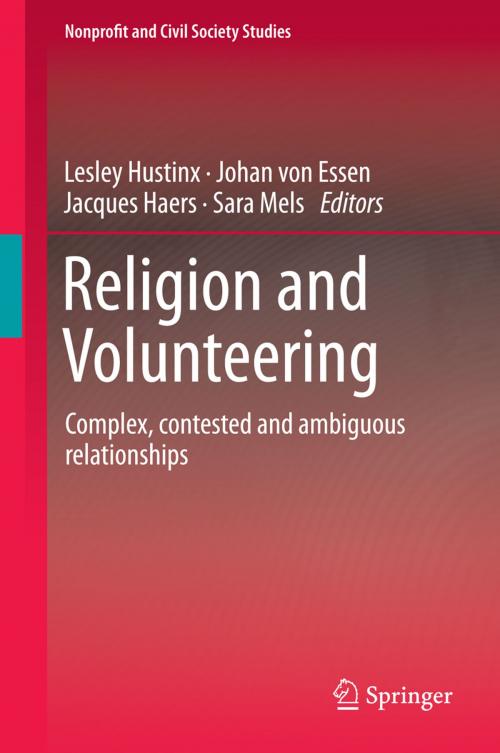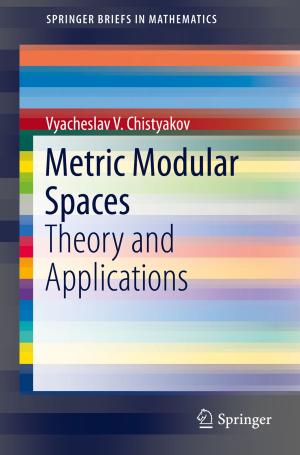Religion and Volunteering
Complex, contested and ambiguous relationships
Nonfiction, Social & Cultural Studies, Social Science, Sociology, Marriage & Family| Author: | ISBN: | 9783319045856 | |
| Publisher: | Springer International Publishing | Publication: | July 17, 2014 |
| Imprint: | Springer | Language: | English |
| Author: | |
| ISBN: | 9783319045856 |
| Publisher: | Springer International Publishing |
| Publication: | July 17, 2014 |
| Imprint: | Springer |
| Language: | English |
Religion is considered a key predictor of volunteering: the more religious people are, the more likely they are to volunteer. This positive association enjoys significant support in current research; in fact, it could be considered the ‘default perspective’ on the relationship between both phenomena. In this book, the authors claim that, although the dominant approach is legitimate and essential, it nonetheless falls short in grasping the full complexity of the interaction between religion and volunteering. It needs to be recognized that there are tensions between religion and volunteering, and that these tensions are intensifying as a result of the changing meaning and role of religion in society. Therefore, the central aim and contribution of this book is to demonstrate that the relationship between religion and volunteering is not univocal but differentiated, ambiguous and sometimes provocative. By introducing the reader to a much wider landscape of perspectives, this volume offers a richer, more complex and variable understanding. Apart from the established positive causality, the authors examine tensions between religion and volunteering from the perspective of religious obligation, religious change, processes of secularization and notions of post-secularity. They further explore how actions that are considered altruistic, politically neutral and motivated by religious beliefs can be used for political reasons. This volume opens up the field to new perspectives on religious actors and on how religion and volunteering are enacted outside Western liberal and Christian societies. It emphasizes interdisciplinary perspectives, including theology, philosophy, sociology, political science, anthropology and architecture.
Religion is considered a key predictor of volunteering: the more religious people are, the more likely they are to volunteer. This positive association enjoys significant support in current research; in fact, it could be considered the ‘default perspective’ on the relationship between both phenomena. In this book, the authors claim that, although the dominant approach is legitimate and essential, it nonetheless falls short in grasping the full complexity of the interaction between religion and volunteering. It needs to be recognized that there are tensions between religion and volunteering, and that these tensions are intensifying as a result of the changing meaning and role of religion in society. Therefore, the central aim and contribution of this book is to demonstrate that the relationship between religion and volunteering is not univocal but differentiated, ambiguous and sometimes provocative. By introducing the reader to a much wider landscape of perspectives, this volume offers a richer, more complex and variable understanding. Apart from the established positive causality, the authors examine tensions between religion and volunteering from the perspective of religious obligation, religious change, processes of secularization and notions of post-secularity. They further explore how actions that are considered altruistic, politically neutral and motivated by religious beliefs can be used for political reasons. This volume opens up the field to new perspectives on religious actors and on how religion and volunteering are enacted outside Western liberal and Christian societies. It emphasizes interdisciplinary perspectives, including theology, philosophy, sociology, political science, anthropology and architecture.















